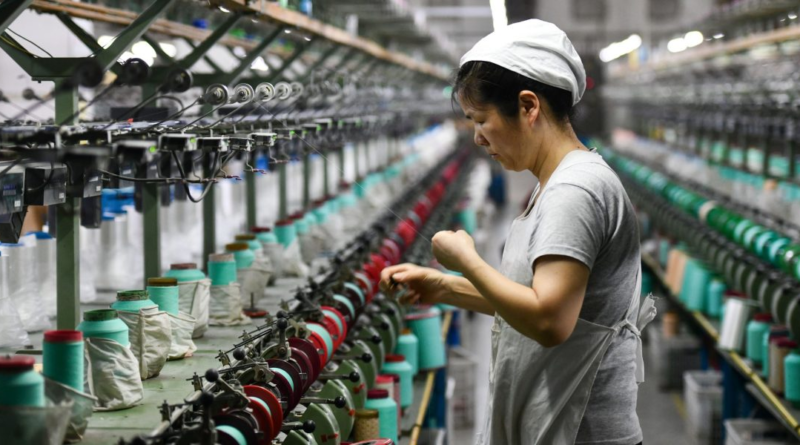China gets a ‘good start’ to 2024 with strong GDP growth—but disappointing March data and falling home sales means it could be running out of steam
China’s “good start” to 2024 is already showing signs it could be running out of steam. While Beijing unveiled better-than-expected GDP growth on Tuesday, statisticians also reported underwhelming figures for March, showing the world’s second largest economy is still struggling with a property crisis and a slump in consumer confidence.
The Chinese economy grew 5.3% year-on-year in the first quarter of the year, according to data from the National Bureau of Statistics. That figure beat economist expectations of around 4.2% to 4.8%. The economy “got off to a good start,” the NBS said in a statement.
Yet other statistics released on Tuesday were less than encouraging, implying that China’s economy still faces serious headwinds. “The foundation for economic stabilization is not yet solid,” the NBS warned.
Property slump
China’s years-long property slump shows no signs of abating, as quarterly new home sales tumbled by 30.7% year-on-year. Property investment also fell 9.5% over the same period.
The country’s property sector is still dealing with a hangover from years of over-borrowing. Regulations passed in 2020, meant to curb debt, instead sparked a liquidity crisis for Chinese developers. The cash crunch pushed several developers to default on their overseas debt, and suspend construction of pre-sold properties.
Officials have tried to boost home sales through measures like lowering down payments and interest rates, yet home prices are still declining. The property giant Evergrande, whose default in late 2021 helped trigger the crisis, has been ordered to liquidate by a Hong Kong court. Other Chinese developers are facing their own liquidation petitions in Hong Kong. On Tuesday, HSBC-owned Hang Seng Bank filed such a petition against developer Times China.
“The property sector is critical,” Vice Premier He Lifeng told officials and bankers in the Chinese city of Zhengzhou, urging greater funding for developers who meet requirements for “timely completion and delivery,” according to the South China Morning Post.
The Chinese government may need to spend $2.1 trillion to resolve problems in the housing market, Goldman Sachs analysts estimated in a report released Sunday.
Retail and exports
The prolonged real estate crisis is contributing to China’s continued struggle with consumer sentiment. According to the NBS, retail sales rose 3.1% in March, lower than the 4.6% consensus estimate compiled by Reuters.
Tuesday’s data suggests that China’s growth in the first quarter was driven by manufacturing. Industrial output rose 6.1% year-on-year for the quarter. Exports were 4.9% higher in the first quarter compared with the same period last year according to data released before the weekend. However, export figures isolated for March showed a steeper-than-expected year-on-year decline.
Industrial output may also already be weakening. Data for March specifically showed a 4.5% rise, lower than the 6% expected by economists.
China is currently trying to move the economy towards higher-value sectors like new-energy vehicles, green energy, and semiconductors. Yet the country’s strength in these industries is raising hackles in Western governments, with some officials, like U.S. Treasury Secretary Janet Yellen, warning of “overcapacity” in conversations with Beijing.




